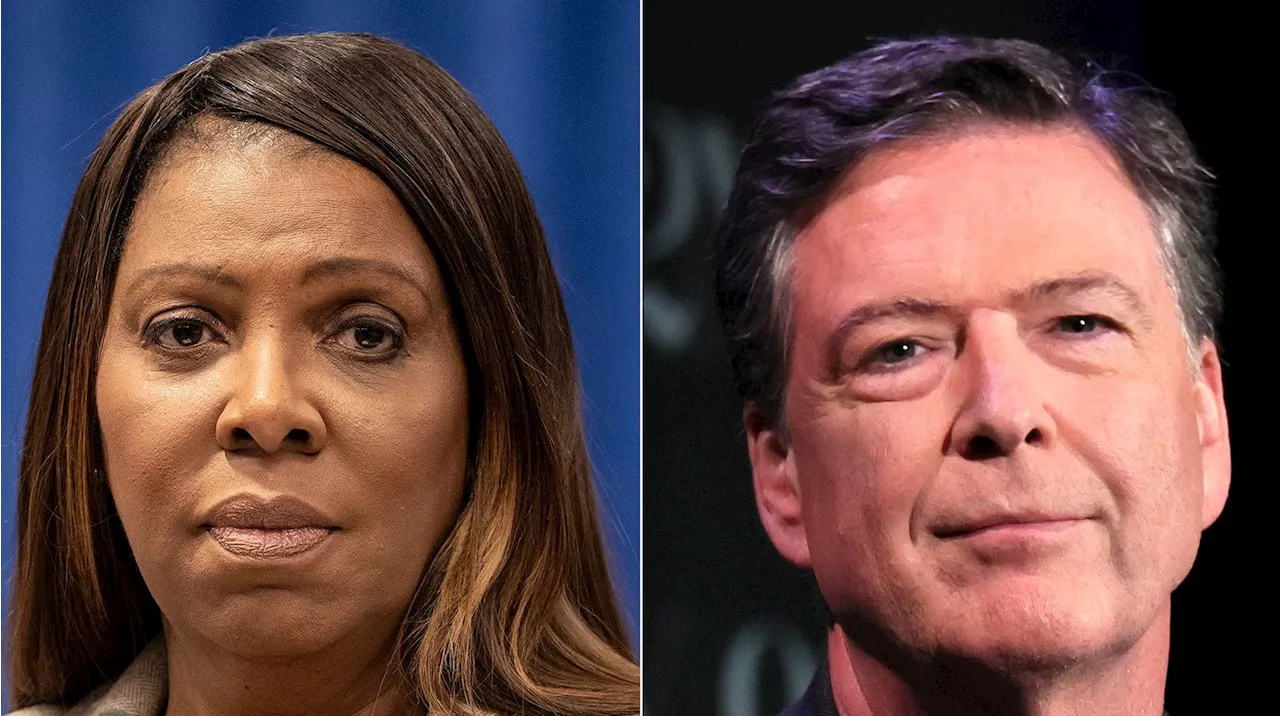Politics
Legal Challenges Emerge Over Halligan’s Role in Comey Indictments

Attorneys for former FBI Director James Comey and New York Attorney General Letitia James filed motions to dismiss cases against them, arguing that the prosecutor, Lindsey Halligan, who secured their indictments was illegally appointed. This legal challenge is set to be examined by a federal judge in the Eastern District of Virginia, a venue that has become crucial in testing the limits of constitutional norms regarding interim U.S. attorneys.
The appointments of U.S. attorneys have historically required Senate approval, reflecting a consensus that these officials hold substantial power over individual freedom. As noted by former Attorney General and Supreme Court Justice Robert Jackson, prosecutors wield more influence over “life, liberty, and reputation” than any other individual in the country. This principle is now being scrutinized as Halligan, appointed by Donald Trump shortly after his public endorsement, moves forward with indictments against Comey and James.
The timing of Halligan’s appointment raises concerns about the adherence to constitutional procedures. According to 28 U.S.C. § 546, the Attorney General can appoint an interim U.S. attorney for a maximum of 120 days. After this period, the authority to fill the vacancy shifts to the district court, which can appoint someone to serve until a permanent replacement is confirmed. This statute was designed to prevent the executive branch from circumventing Senate confirmation through consecutive interim appointments.
In 2006, Congress amended this statute, allowing interim U.S. attorneys to serve indefinitely without Senate confirmation. This change sparked bipartisan backlash, prompting Congress to revert to the previous framework in 2007 with the passage of the Preserving United States Attorney Independence Act. This legislation, which passed the Senate with a vote of 94-2, aimed to maintain the integrity of prosecutorial appointments and prevent politicization within the justice system.
The recent developments in Virginia echo historical debates about the authority to appoint prosecutors and the safeguards necessary to prevent political manipulation. The inquiries into Halligan’s appointment highlight long-standing questions about the balance of power between the executive branch and the judicial system. The legal community is closely watching this case, as the outcome may have significant implications for the future of prosecutorial appointments.
A federal judge is expected to hear arguments regarding Halligan’s appointment soon, and the implications of this legal battle could resonate beyond the current cases involving Comey and James. As the judicial process unfolds, the focus remains on the foundational principles that govern the appointment and oversight of U.S. attorneys, ensuring that accountability and the rule of law are preserved.
-

 Politics3 weeks ago
Politics3 weeks agoHamas Chief Stresses Disarmament Tied to Occupation’s End
-

 Science2 weeks ago
Science2 weeks agoOhio State Study Uncovers Brain Connectivity and Function Links
-

 Entertainment2 weeks ago
Entertainment2 weeks agoMegan Thee Stallion Exposes Alleged Online Attack by Bots
-

 Science4 weeks ago
Science4 weeks agoResearchers Challenge 200-Year-Old Physics Principle with Atomic Engines
-

 Entertainment2 weeks ago
Entertainment2 weeks agoPaloma Elsesser Shines at LA Event with Iconic Slicked-Back Bun
-

 World2 weeks ago
World2 weeks agoFDA Unveils Plan to Cut Drug Prices and Boost Biosimilars
-

 Top Stories3 weeks ago
Top Stories3 weeks agoFederal Agents Detain Driver in Addison; Protests Erupt Immediately
-

 Business2 weeks ago
Business2 weeks agoMotley Fool Wealth Management Reduces Medtronic Holdings by 14.7%
-

 Business2 weeks ago
Business2 weeks agoHome Depot Slashes Prices on Halloween Favorites Up to 75%
-

 Entertainment2 weeks ago
Entertainment2 weeks agoBeloved Artist and Community Leader Gloria Rosencrants Passes Away
-

 Top Stories3 weeks ago
Top Stories3 weeks agoOrioles Hire Craig Albernaz as New Manager Amid Rebuild
-

 Entertainment3 weeks ago
Entertainment3 weeks agoSyracuse Stage Delivers Lively Adaptation of ‘The 39 Steps’









